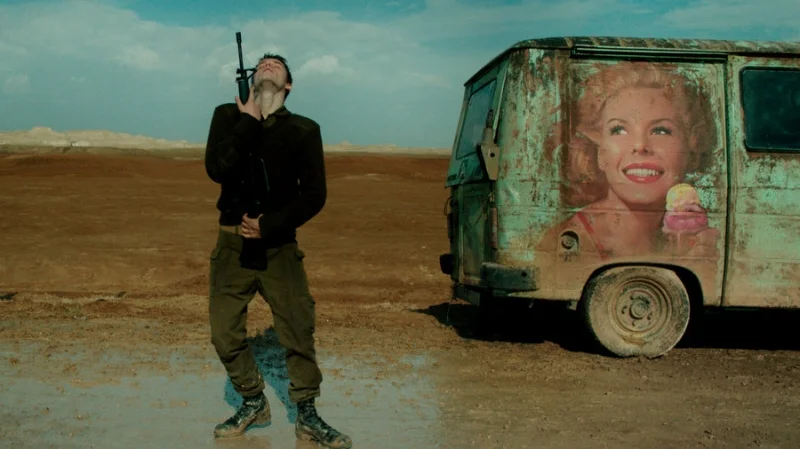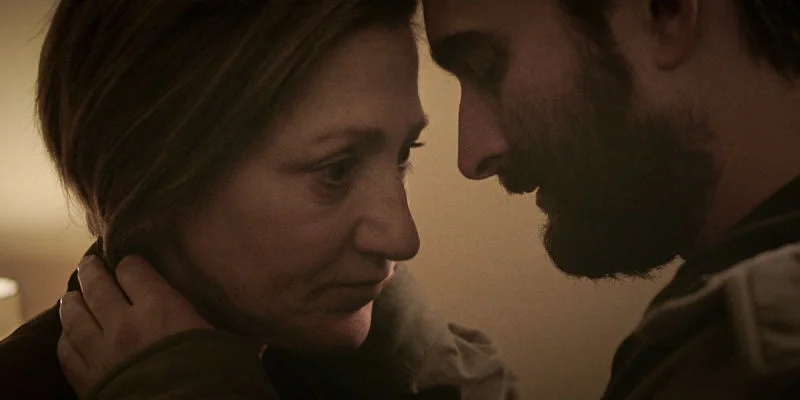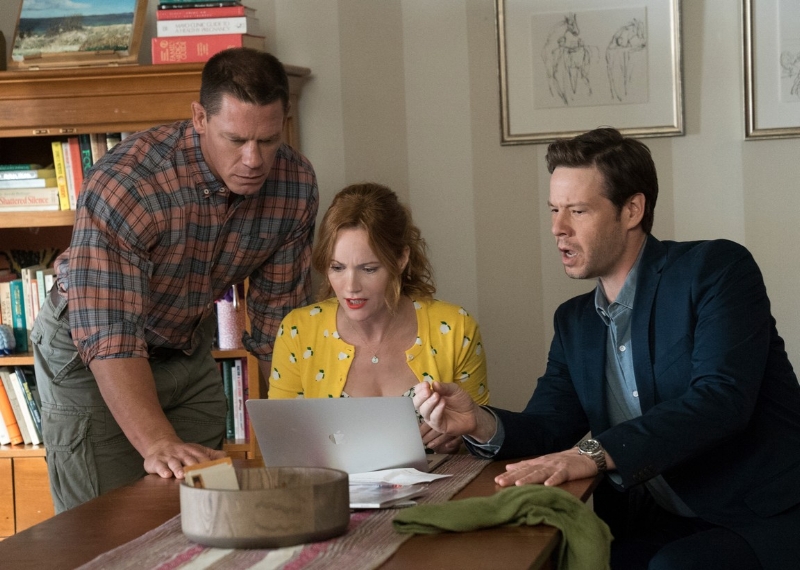FOXTROT
Directing: A-
Acting: A-
Writing: A
Cinematography: A-
Editing: A
Foxtrot is presented in three acts, each pretty radically different from the last, almost as though watching three separate 35-minute short films. They are inextricably linked, however, and as such do not feel so separate, in spite of the jarring change of environments.
The first and third act feature the same characters, but a different focus. The first is on middle-aged father Michael Feldman, played by Lior Ashkenazi, who looks rather like a cross between Christoph Waltz and Steve Carell. Writer-director Samuel Maoz takes an almost uncomfortably intimate look at a father's grief when he is told his son was killed in action, Ashkenazi showing a shattered vulnerability rarely seen with men onscreen.
In this first act, Michael's wife, Daphna (Sarah Adler), has been drugged and spends much of the time incapacitated in bed. I began to wonder if Foxtrot would be a disappointment in its sidestepping of its female characters. But when the story returns to these two in the third act, the focus shifts much more on her.
In between, the story shifts suddenly to the military post where their son, Jonathan (Yonaton Shiray), is stationed with three other young men manning a checkpoint out in the middle of nowhere. Just as often as the gate is raised for Palestinians passing through, it's raised for a camel meandering down the road.
In spite of these soldiers' general lack of emotion, this entire second act is hypnotic in its pacing and in its stark imagery. Grimy computer equipment is used to scan passport photos to check for clearance; makeshift tools are used to keep a run-down radio working. It all feels like an old vision of a dystopian future, distant echoes of films like Blade Runner, as if to demonstrate that such dystopian visions are very real, current realities in certain parts of the world.
The soldiers have an eerily dispassionate approach to their jobs. In one memorable sequence, a middle-aged Palestinian couple dressed in formal attire is asked to step out of their car. They wait as their passports are scanned, drenched quickly under a sudden torrential rainfall.
Foxtrot is full of fairly obvious metaphors, not least of which is the title itself, with separate characters at different times literally dancing the Foxtrot to demonstrate how they always wind up right back where they began. The young Israeli soldiers hang out inside an abandoned shipping container, which is slowly lowering into the ground at one end. One of them says, "We're sinking." Indeed. Somehow, though, obviousness notwithstanding, these metaphors stop short of feeling forced.
With another carload of young Palestinians, something goes terribly wrong, a simple mistake turned into tragically fatal error. Jonathan is involved, but the way he fits into the broader story arc of Foxtrot is not quite what you first expect. Sudden turns of events that alter people's lives and fates can come out of nowhere, quite randomly, with no apparent link to moral cause and effect. In the real world, there is no karma -- only senselessness.
There's a sort of elusive perfection to this movie, a clear precision, a unique finesse, without spelling out exactly what Samuel Maoz is trying to say. Certainly plenty of Israelis feel they understand it, as this movie has proved controversial in its country of origin. That's hardly surprising. For the rest of us, further removed from those cultural biases, it's easier to take Foxtrot as a beautifully artistic portrait of familial grief, and how perception can radically alter meaning. Jonathan's parents observe one of his drawings left behind, of a bulldozer moving a wrecked car, as a representation of themselves. They have no idea the drawing is a straightforward representation of a life changing event.
Foxtrot is the kind of movie that stays with you, both provocative and deeply moving. It reminded me in certain ways of The Hours, otherwise very different but also a portrait of emotional pain, from varying perspectives that click into place like a psychological puzzle. Its themes are definitively depressing, but there's something extremely satisfying about it.
It's a dance that just brings you back to where you started.
Overall: A-










